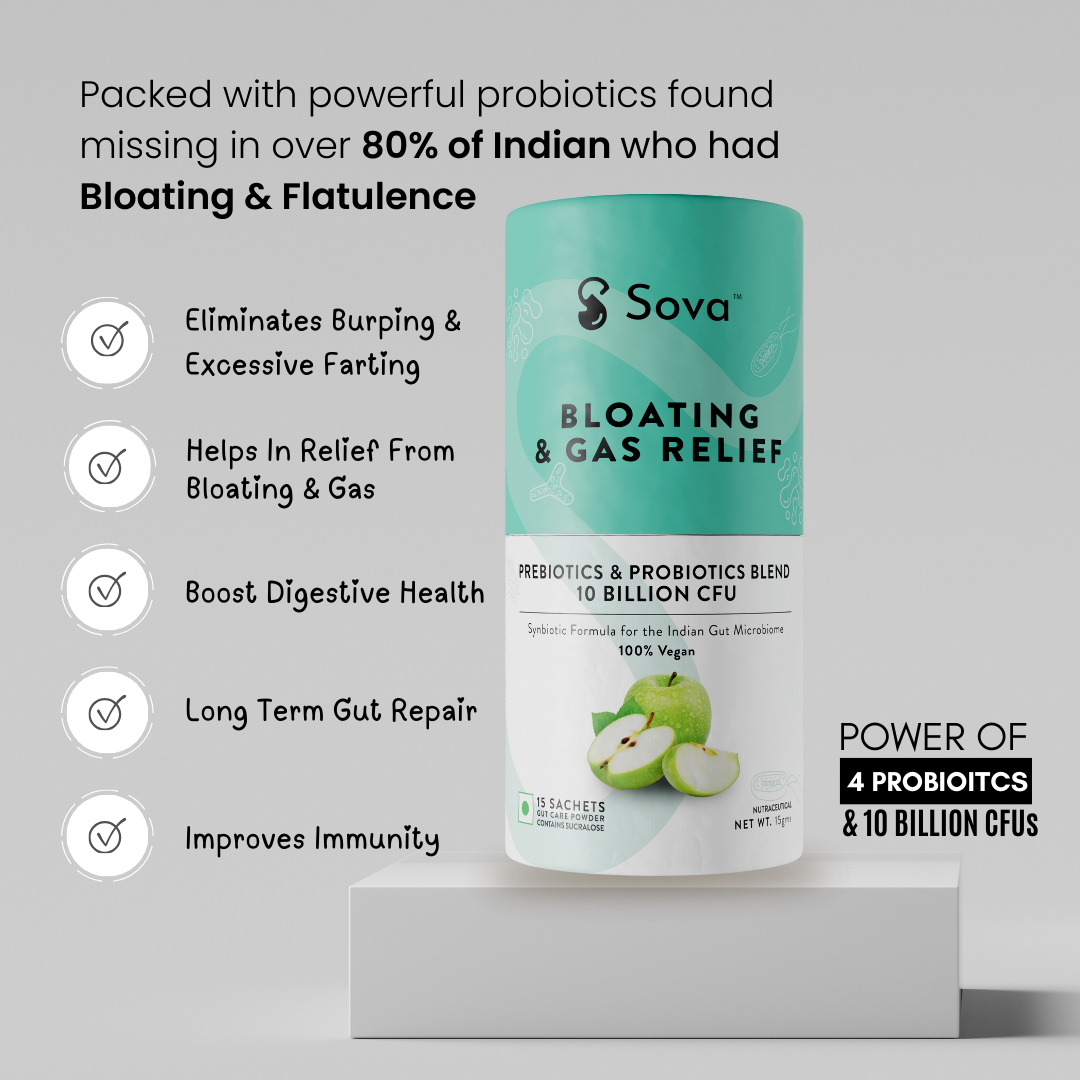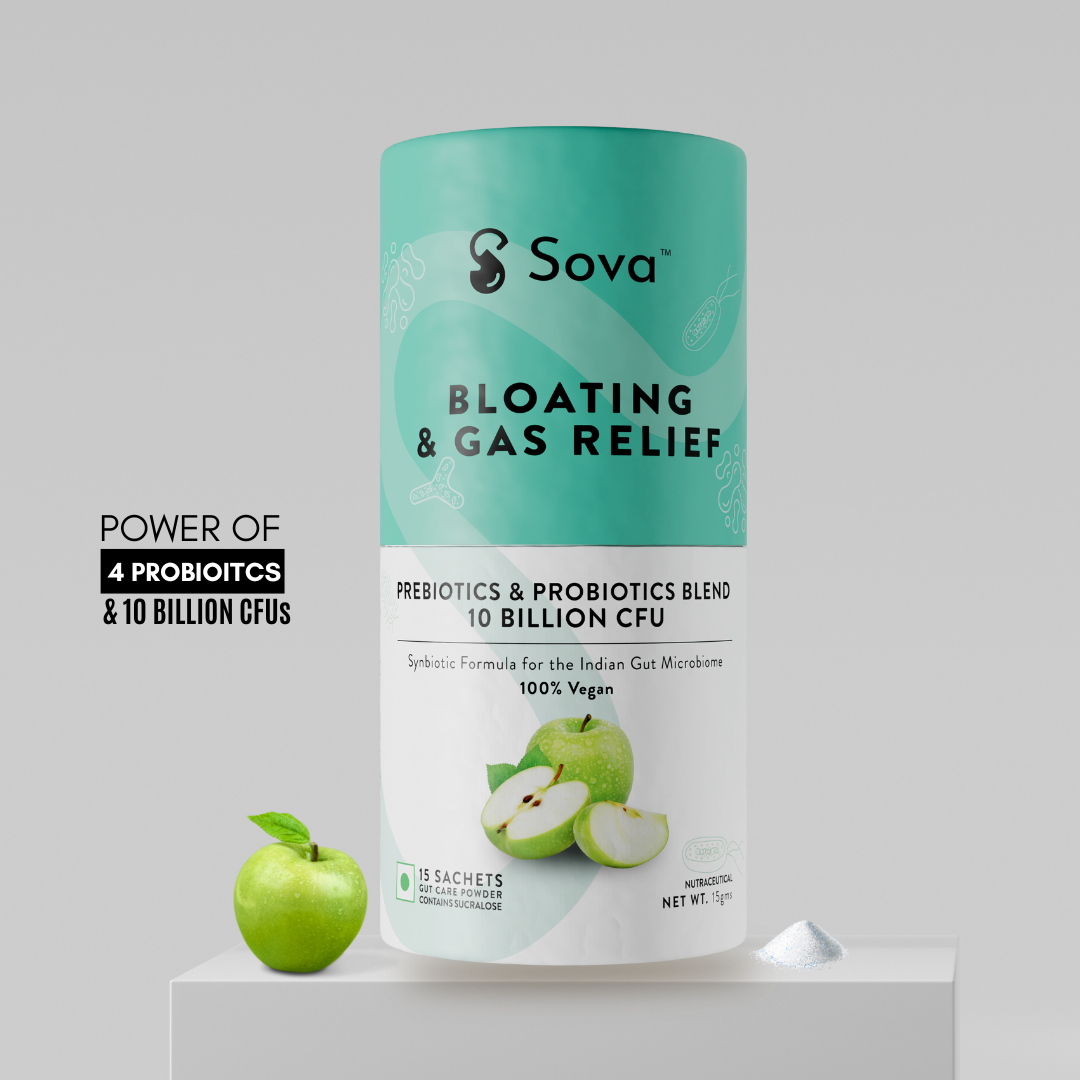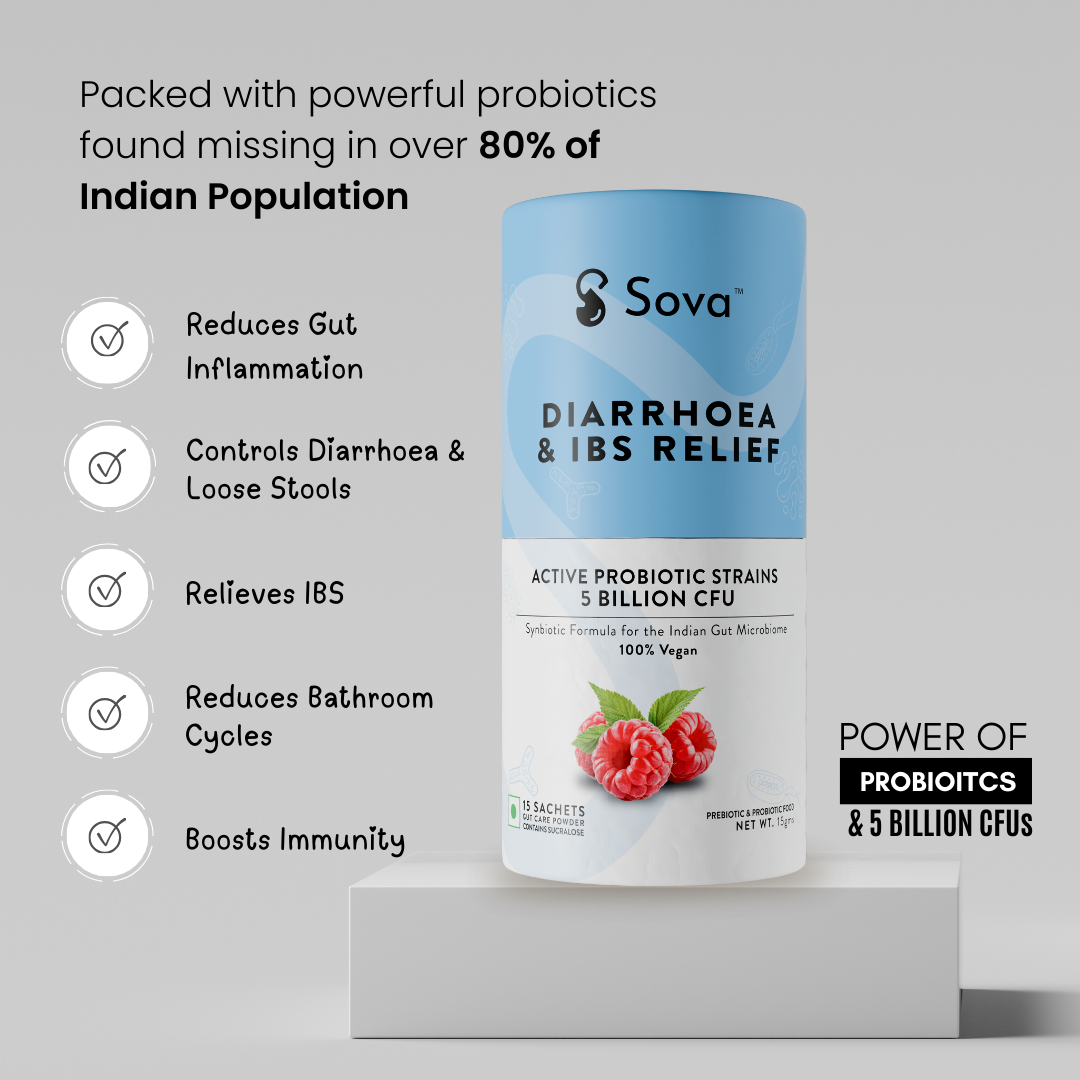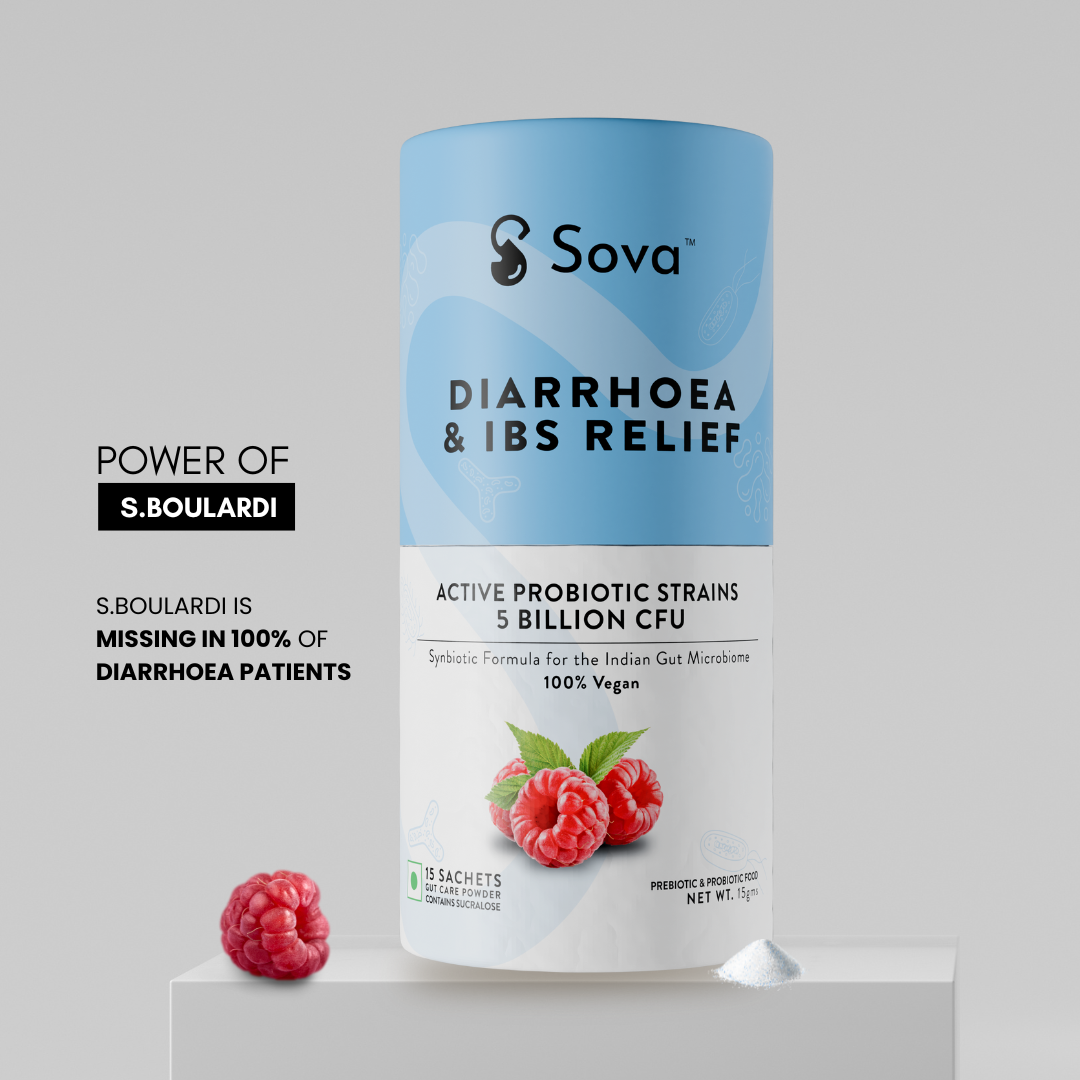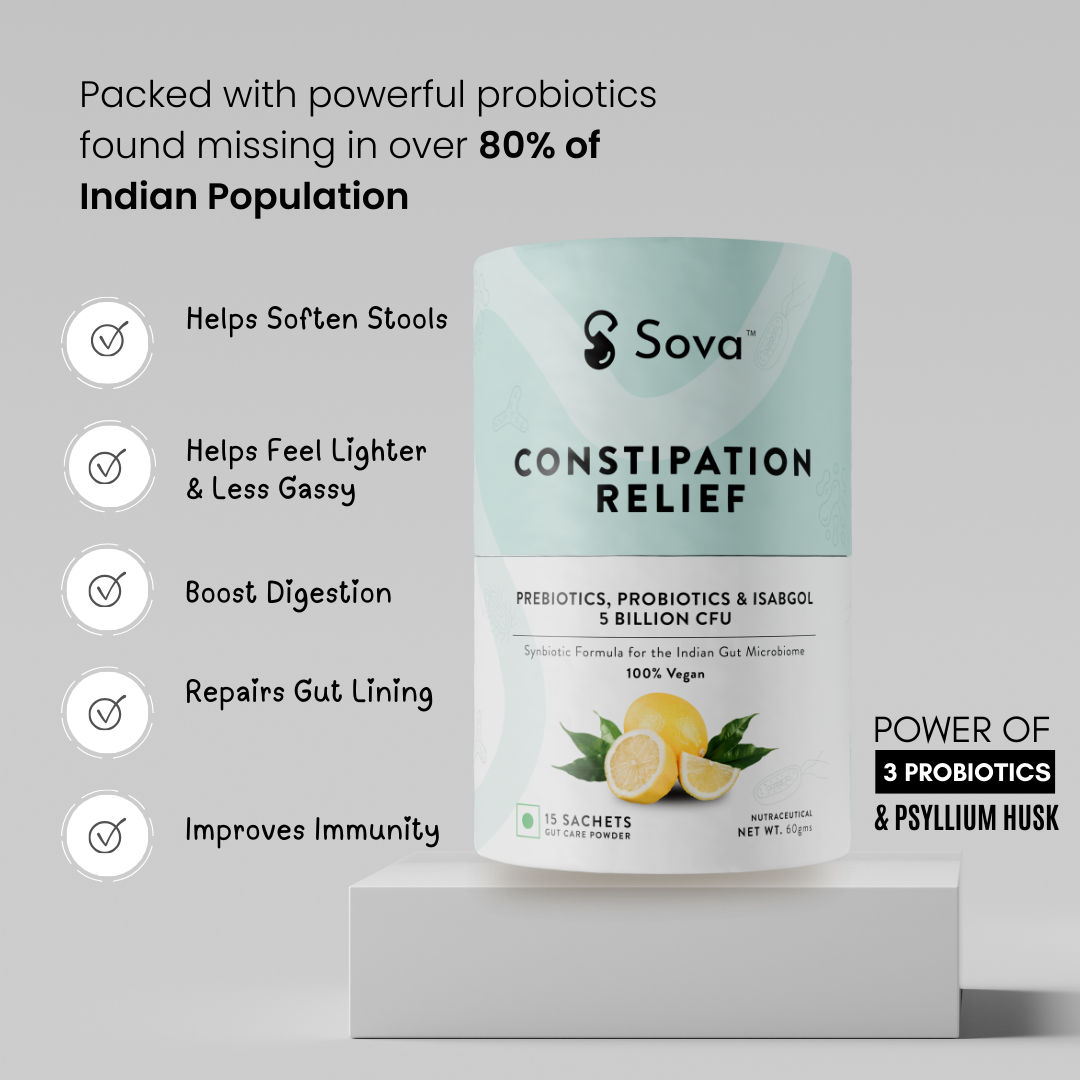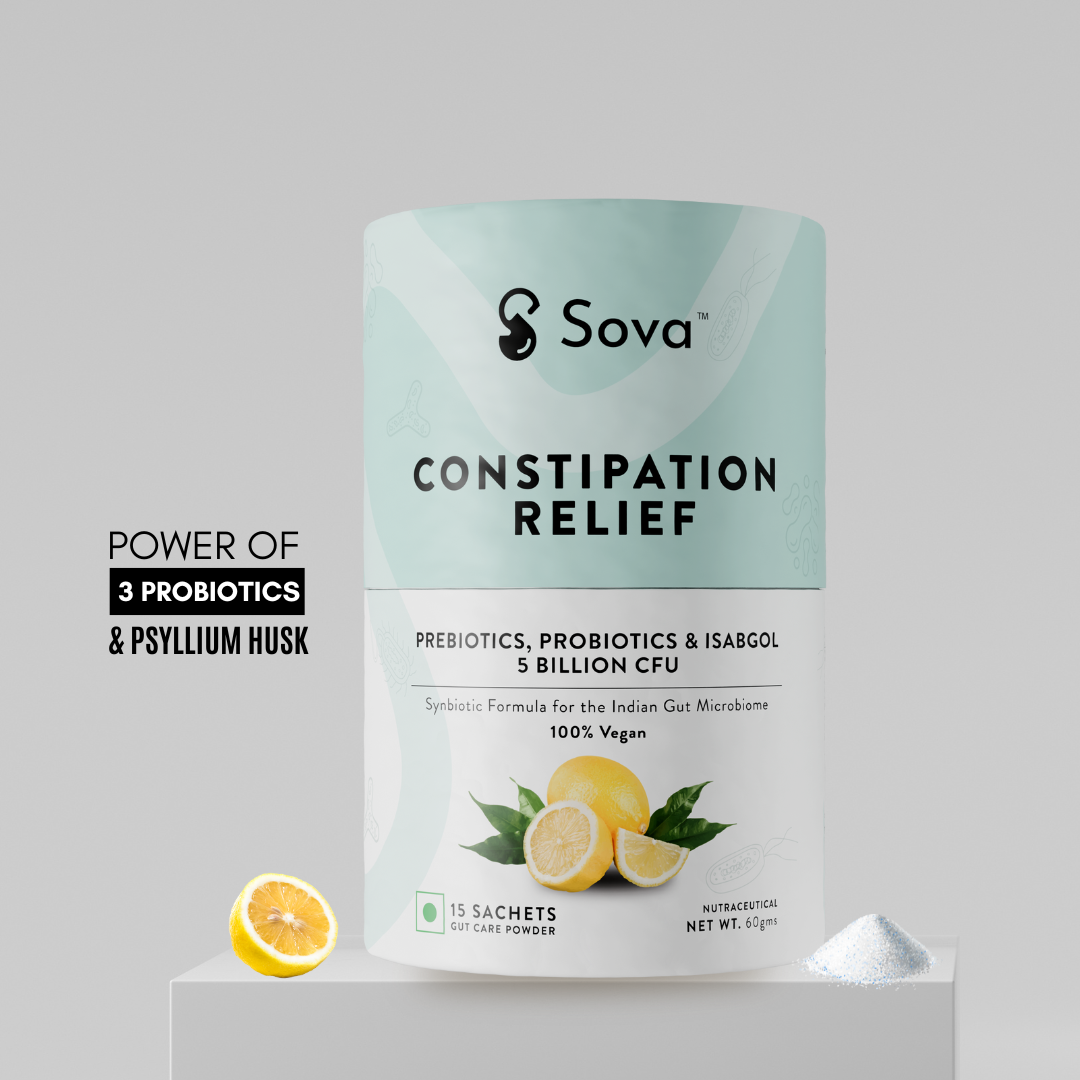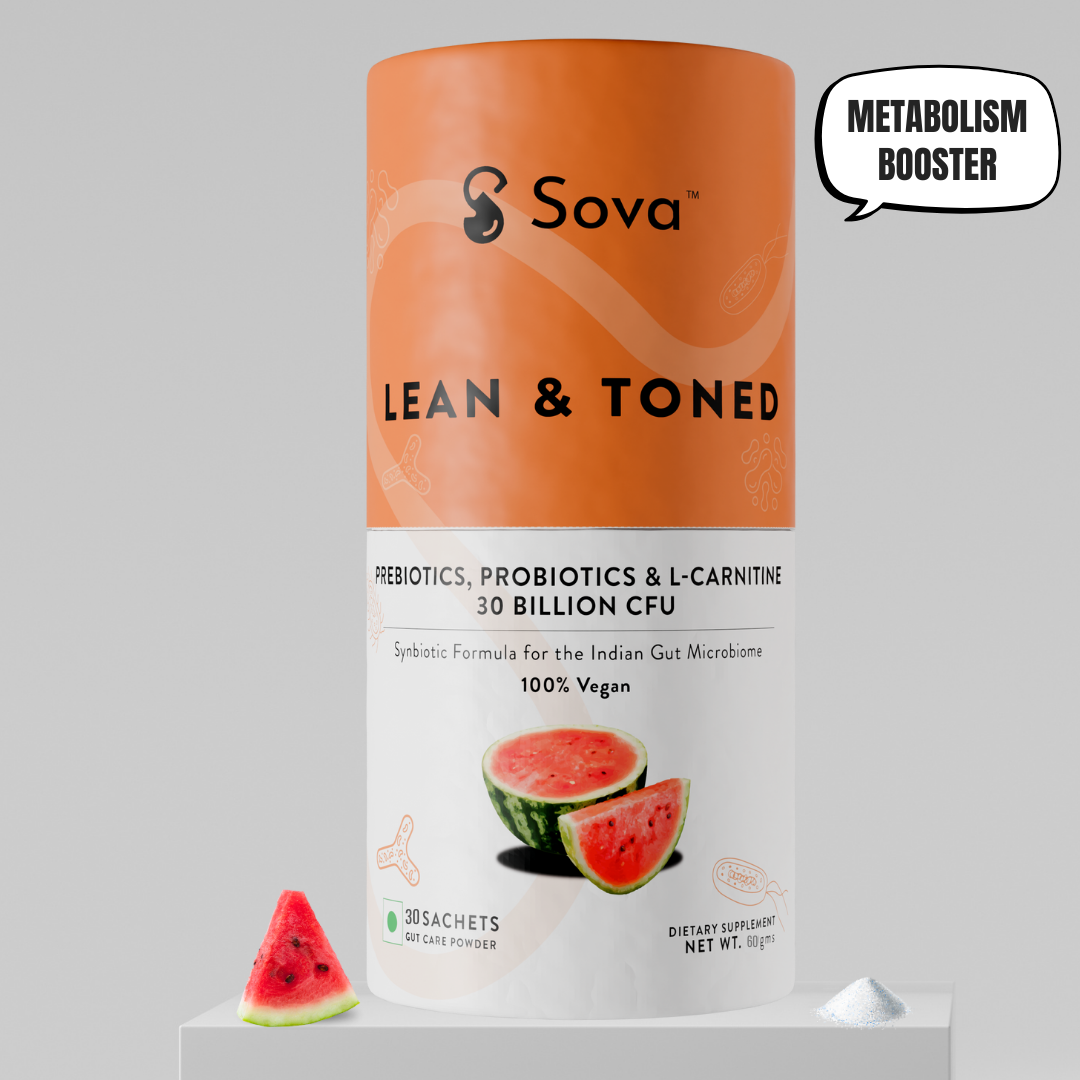Probiotics through food or supplements play a vital role in giving relief from gut-related issues. Probiotics have proved to have a good influence over the overall gut health by regulating bowel and digestion. As weight loss is linked with gut health, probiotics play a huge role in reducing weight and belly fat. Best probiotics keep our gut healthy which is effective while working out for weight loss.
Gut & Weight Loss Connection
The gut plays an important role in losing weight. The body contains many healthy bacteria in the guts which functions to keep the body healthy. The bacteria of the gut come in contact with the food we eat as they line along with the intestine wall. This affects the nutrients that are absorbed by the body as well as the stored energy.
The quality or type of the bacteria in the gut defines if the body is more prone to obesity. Gut bacteria is highly responsible for weight fluctuation in the body which is because of the influence of bacteria while digesting different food. Certain bacteria can break down and release healthy chemicals from complex food products which is good for the guts and results in weight loss. The gut bacteria check weight gain by digesting flavinoids which as a kind of complex antioxidant.
There are two types of bacteria responsible for weight loss depending on the kind of food we consume:
- Prevotella: digests carbohydrates and fiber. It has been proved that prevotella bacteria helps in losing more body fat than bacteroidetes.
- Bacteroidetes: for people who consume more fat and animal protein.
Thus, gut bacteria decides how the fat from the food will be absorbed in the intestine which affects the fat storage in the body. Lipopolysaccharide is a chemical that causes inflammation when it passes through the bloodstream. Some of the bad gut bacteria cause inflammation by producing lipopolysaccharide which results in weight gain.
Some of the gut bacteria produce chemicals that make one feel hungry on full accordingly. Propionate is a kind of short-chain fatty acid which is responsible for reduced food intake and weight gain.

Understanding Impact of Best Probiotics
Probiotics help the gut to remain healthy by replacing and balancing the good and the bad bacteria in the body. Some of the common health conditions that probiotics help are:
- Diarrhea as a result of consuming antibiotics
- Diarrhea caused by bacteria, parasites or virus
- Irritable bowel syndrome
- Inflammatory bowel disease
- Oral health
- Vaginal and urinary health
- Skin conditions
- Relief from colds and allergies
- Weight loss
Probiotics show the best result when it is used with other healthy habits such as:
- Diet: probiotics used with a healthy diet such as leafy vegetables, colorful fruits, and other nutrients yield better results.
- Fermented food: food such as yogurt and other fermented foods is a good source of probiotics.
Types of Probiotics

Probiotics store fat, make the body feel full, and absorb calories which helps in managing weight loss. The major bacteria are grouped into two types of probiotics, namely:
- Lactobacillus Gasseri: this strain is the most common type which helps in weight loss, managing BMI, and reducing fat percentage and waist circumference in people who are struggling with obesity. Yogurt and fermented food consist of this strain of probiotics which have anti-obesity properties.
It also helps digestion in people who are lactose intolerant and are prone to frequent diarrhea. Consuming lactobacillus gasseri for 12 weeks approximately has shown positive results of reduction of body weight by 8%.
- Bifidobacterium: One of the best probiotics for weight loss, it gives relief from irritable bowel syndrome. Dairy products consist of this strain of probiotics. It has been proved that bifidobacterium have shown more significant results compared to that of consuming placebo.
There is a variety of probiotic supplements available in the market with these two above-mentioned groups. There are alternatives available too in the form of food that can be consumed for weight loss. Some of the alternatives to probiotic supplements are:
- Olives
- Yogurt
- Soft cheese
- Kombucha
- Kimchi
- Apple cider vinegar
- Fermented prickles
- Buttermilk
Read more: Best diet for weight loss
Importance of Probiotics in the Diet
- Reduces water loss through skin and dryness of the skin
- Helps in strengthening the immunity
- Prevents colds and allergies
- Improves urinary and vaginal health
- Helps in weight loss
Leveraging Gut Health for Weight Management
It is often referred to as the "second brain of the body." The gut microbiome directly affects how a person regulates their weight and metabolic health. Trillions of bacteria are found in it, interacting directly with food particles that determine nutrient absorption, energy storage, and appetite. A healthy gut microbiome breaks down complex carbohydrates and fibers for efficient satiety by releasing compounds signaling fullness to the brain, preventing one from overeating and creating minimal deposits of fat.
Disruptions in the balance of gut bacteria-like those caused by a bad diet, inadequate exercise, or stress-could give rise to problems such as inflammation. Some research indicates an unhealthy microbiome may produce compounds that spark inflammation and disrupt metabolic processes, making the body more likely to store fat rather than burn it. This relationship explains why maintaining a healthy gut is crucial for efficient weight management.
Best Probiotics for Weight Loss
Some specific strains of probiotics, or gut-friendly bacteria, have been proven to play a role in weight reduction and fat loss. Probiotics might even rebalance the gut, improve digestion, and help support a decrease in belly fat. Here are some of the most effective types of probiotics for weight control:
1. Lactobacillus Gasseri
This is a very studied type of probiotic. It has shown a strong anti-obesity property. It helps reduce abdominal fat, waist circumference, and even BMI. This strain appears to exert its effect by blocking the absorption of dietary fats, leading to a diminished uptake of calories and an accumulation of fat stores. In one British Journal of Nutrition study, where the subjects received L. gasseri supplements, the visceral fat was lowered by 4.6% in 12 weeks. You can obtain Lactobacillus gasseri via fermented foods like yogurt, kimchi, and probiotic supplement products.
Mechanism: Lactobacillus gasseri is highly effective on the body's abdominal fat gathering. It maintains the digestive system's intake of fat at a minimum level and reduces the hormone which regulates hunger, lepton. It also reduces the accumulation of visceral fats. This enhances the body composition.
Benefits:
- Enhances the loss of abdominal and visceral fat
- Reduces BMI and waist size
- Improves immune functions by reducing inflammatory response
Recommended Dose: Research studies recommend around 10 billion CFU (colony forming units) per day. Foods include fermented foods such as kimchi and yogurt, or supplements that specifically contain it for weight loss.
2. Lactobacillus Rhamnosus
This strain has been connected to weight reduction, particularly among women. The British Journal of Nutrition conducted a study and concluded that women who were given Lactobacillus rhamnosus lost almost twice as much as the women in the placebo group. L. rhamnosus is known to affect the balance of gut bacteria and also to reduce appetite so helps in losing weight. Natural sources for Lactobacillus rhamnosus include yogurt, kefir, and other fermented dairy products. It is also available as a supplement, which could assist in the constant intake of this beneficial strain.
Mechanism: Lactobacillus rhamnosus has a relationship with modulation of weight, and it had extra effects on mood and appetite. It had been shown to affect bloodstream concentration of leptin, which would then result in an impact to control appetite. It had also been demonstrated to improve intestinal barrier function, thus reducing inflammation and other metabolic disturbances that are very often followed by body weight gain.
Benefits:
- Causes weight loss, mainly in female subjects
- Improves the integrity of the gut barrier, therefore resulting in a reduced propensity for inflammation
- May indirectly aid weight management because it helps modulate the mood; it reduces stress-induced eating.
Recommended Dosage: For weight loss, a daily dose of 1-10 billion CFU is recommended. Bifidobacterium lactis can be found in fermented products like kefir and yogurt or can be sourced through specific probiotic supplements.
3. Bifidobacterium Lactis
This Bifidobacterium lactis is reportedly contributing to general gut environment support. This impacts lipid metabolism and may aid in promoting weight loss. Improved digestion and balance in the gut microbiota and its decrease in inflammation can facilitate weight loss. But studies have proved that Bifidobacterium lactis can enhance the body's ability to metabolize dietary fats in a way that reduces body fat. You can get B. lactis in yogurt and any quality probiotic dietary supplement.
Mechanism: Bifidobacterium lactis causes a reduction in body weight by improving lipid metabolism. Lipid metabolism is the process by which the body absorbs fats, converts them into forms that can be used by the body, and then stores them. It inhibits pathogenic bacteria' proliferation and triggers the immune response for better digestion and gut health.
Benefits:
- Enhance lipid metabolism to help in the reduction of body weight
- Boost digestion and nutrient uptake
- Eradicate inflammation and promote a healthy metabolic rate
Recommended Dosage: The effective intake lies between 5-10 billion CFU per day. It is normally present in high-quality probiotic supplements and foodstuffs from dairy.
More Probiotics Consumption Instructions
Probiotics should ideally be administered consistently when added to a regimen. Those strains generally respond when consumed daily for 8-12 weeks. A balanced diet which contains good amounts of fiber goes well with probiotics as fiber acts as a prebiotic, feeding the good bacteria, so they work better.
Best Probiotic-rich Foods or Supplements
Here’s a list of food items you can include in your everyday diet to ensure probiotic intake and aid digestion
- Yogurt: Eating 1 cup of plain, unsweetened yogurt every day packs a probiotic nutrient punch. Yogurts contain some very well-studied Lactobacillus and Bifidobacterium strains that have been implicated in gut health and weight management. When buying yogurt, a label with "live and active cultures" usually means more of these good bacteria.
- Kefir: Kefir is a tart, fermented milk drink. It can be drank straight or blended into milkshakes. Drinking 1 cup a day will result in a diverse range of probiotics, including Lactobacillus gasseri and several Bifidobacterium species, which have all been well-studied for their connections to weight loss and gut health. Because it is fermented to degrade lactose content yet retain its ability to deliver optimal gut health, kefir is also especially beneficial for those who are lactose intolerant.
- Sauerkraut & Kimchi: Fermented vegetables, perfect for adding probiotics to your diet. 1 to 2 tablespoons, taken several times a week, serve up a dose of Lactobacillus and other beneficial microbes that help break food down further, stimulate the metabolism, and are said to spur on weight loss. They are high in fiber and vitamins, supporting total digestive health.
- Probiotic Supplements: For improved specific effects, a supplement is always very effective. A daily dose containing 5-10 billion CFUs may be adequate for the maintenance of a healthy gut flora, in particular when supplemented with strains such as Lactobacillus gasseri, Lactobacillus rhamnosus, and Bifidobacterium lactis. Supplements must be taken with food to enhance their intake and effectiveness.
- Miso & Tempeh: This fermented soy food with positive content of beneficial bacteria can be introduced into the diet a few times a week. Miso can be added to soups or as a seasoning, and tempeh is a good meat substitute for stir-fries or salads. Both have beneficial bacteria and protein content and are wonderful for gut health and sustained energy levels, thus overall wellness and weight control.
Such foods and supplements add to the gut health as well, which further relates to weight loss, improved digestion, and efficient metabolism. The best part is that probiotics can be used in conjunction with a high-fiber balanced diet and regular exercise.
Understanding Impact of Probiotics Over Time
Probiotics release short fatty acids such as propionate, acetate, and butyrate, affecting energy usage and storage. They also check inflammation, storage of dietary fat, and increase the fat defecated. Probiotics release certain hormones to stimulate the appetite. Increased levels of hormones like peptide YY and glucagon-like peptide 1 aid the body in burning fat and calories. They reduce fat storage capacity by increasing the amount of Angiprotein like 4 that regulates fat. It also tends to enhance sensitivity to insulin which aids in weight loss.
Probiotics give protection against obesity and other health-related diseases if the gut lining is healthy and strong. Solely depending on losing weight on probiotics will not yield the best results. It is beneficial to have probiotics for weight loss along with other healthy lifestyle activities. Having a balanced diet food and regular physical exercise will be beneficial for losing weight on probiotics.

The chart illustrates the impact of probiotics on weight loss over 12 months, showing consistent improvement. The data highlights how incorporating probiotics into daily diets can result in gradual weight reduction due to enhanced gut health and improved metabolism.
Key Details:
- Initial Progress (Months 1–3):
In the first quarter, weight loss begins modestly, with individuals experiencing around 2% reduction in body weight. This phase aligns with the time probiotics take to balance gut flora.
- Steady Growth (Months 4–8):
Mid-year shows significant progress (3%–7.5%), as probiotics enhance digestion, reduce inflammation, and suppress appetite by regulating hunger hormones like ghrelin.
- Sustained Benefits (Months 9–12):
By the end of the year, weight loss reaches around 11%, reflecting consistent gut health improvement and better nutrient absorption.

What Scientific Studies Have Found About Probiotics?
Some of the probiotic strains that have actually proven their potential to affect weight management include Lactobacillus gasseri, Lactobacillus rhamnosus, and Bifidobacterium lactis, among others. Many of them conducted clinical trials and proved that these probiotics are effective in weight loss and especially in improving the intestinal health in general.
-
Lactobacillus Gasseri: This strain has been heavily studied for its anti-obesity activity. A 2013 randomized, double-blind clinical trial demonstrated Lactobacillus gasseri BNR17 intervention resulted in decreased visceral fat, body weight, and waist circumference in obese subjects. Reductions in abdominal fat were significantly significant at the end of 12 weeks with corresponding metabolic health markers also improved for the subjects (Probiotics, ICHGCP). Synbiotics such as Synbiotic 365 consist of 20 billion CFU of L. gasseri BNR17, which is twice the dose from clinical studies that have shown weight-loss benefits of
Probiotics
. -
Lactobacillus Rhamnosus: The other well-researched probiotic is Lactobacillus rhamnosus, which is being sought to support weight loss in women. "Women on a placebo supplement gained half the weight lost from the L. rhamnosus supplement", the British Journal of Nutrition reported one study. Probiotics
.This particular strain is available as yogurt, kefir, and supplements, so it is not that difficult to add it to the diet.
-
Bifidobacterium Lactis: Bifidobacterium lactis promotes the improvement of the metabolic activity of fats. Thus, it has been linked with less body fat and weight. It promotes digestive health through nutrient uptake and promotion of the growth of the favorable bacteria of the gut Probiotics
Research has proven that daily consumption of B. lactis reduces body fat, in the presence of a proper diet and exercise routine (ICHGCP)
Conclusion
Good bacteria affect metabolism by helping the body to make short-chained fatty acids, ferment fibers, break down carbohydrates, etc. Thus Probiotics in the form of food and supplements showed a positive effect on body weight when consumed with a whole-food diet. Probiotics are good bacteria that help in digestive health and control inflammation and cardiovascular risk factors besides managing weight loss. The best probiotics depend on factors such as age, probiotic type, initial weight, dosage, and duration. Thus, it is important to consult a doctor and take a gut biome test before depending on probiotics for weight loss.
In Sova Health, we have our best weight control supplement which helps in rapid weight loss, restores the gut microbiome, boosts metabolism, burns belly fat, and checks cravings. Our probiotics for weight loss give relief from imbalanced and heavy guts. Our dedication to the cause is visible through the diversity of our probiotics products according to the concern.
By adding probiotics to your lifestyle, you can not only fight with weight loss but also get relief from many health conditions that are directly or indirectly related to the gut. They restore gut balance and help in digestion which improves the overall quality of your life.
Metabolic Fuel: Metabolic Fuel Synbiotic Supplement
Weight Management Supplements: Weight Management
Related Readings: Benefits of Specific Probiotic Strains

